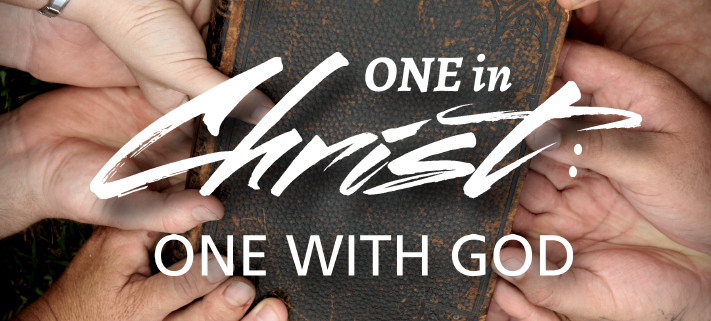Great stories of the Bible: Joseph
Joseph
Joel S. Heckendorf
“What God ordains is always good.” Try saying that to a preschool mother who just found out that her husband has stage-four cancer. “What God ordains is always good.” Try saying that to a congregation president whose pastor resigned because his lifestyle is no longer above reproach. “What God ordains is always good.” Try saying that to a dad whose teenage daughter died in a rollover accident. Then duck, because you never know what they might throw at you.
As Christians, we know that bad things happen because of sin. But when bad things happen to us, our voices quickly harmonize with the skeptics, “How can a good God let bad things happen?”
Welcome to Joseph’s world (Genesis chapters 37–50). Early on, life was good. Yes, his mother died when he was a young boy, but Joseph still had big dreams. He had a loving father and 11 brothers who helped put food on the table. He dressed well, sporting a multicolored robe you’d expect to see modeled on a red carpet. But what once was a promising life, as vibrant as the coat that he donned while skipping his way to the fields, soon turned gray. Hated. Framed. Forgotten. At one point, all could have served as the title of his autobiography. But thankfully, those titles were merely chapter headings. None of them were the final chapter.
The final chapter of the Bible’s first book (Genesis 50) shares one of the great biblical lessons when it comes to dealing with difficult times. The lesson is simple: Wait. Why doesn’t God show his power over this disease? Wait. Why did God allow a congregation to endure that struggle? Wait. Why did he call that person out of this world? Wait. In other words, don’t be too quick to close the book on your autobiography. Leave room for a final chapter. In the end, you’ll see God’s providence. In the end, you’ll see that “God intended it for good” (Genesis 50:20).
We may not always appreciate or understand how God exercises his authoritative hand. But when we look at his leading hand, the conclusion is clear: God is good, no matter the present circumstances. God is so good that he sent his Son to this world to live and die for us so that he could lead us to eternal life. If he is leading us to life, you can bet he will lead us through life. With that perspective, we no longer view things of this world as “good things” or “bad things.” They’re “God” things—things that God is using to bring us through this life to himself in heaven.
Therefore, we can say with confidence, “What God ordains is always good.”
Exploring the Word
1. Tell the story in your own words. Then read the account. Which details did you omit or mistakenly add?
Answers will vary. If studying in a group, split up into smaller groups and see how many different details are included in the exercise. Why do you think some details made every list and other details didn’t make any lists?
2. Why do you think this story is one of the most popular stories included in children’s bibles?
Many children’s books end with “happily ever after.” The account of Joseph is such a story.
3. What were once difficult times in your life that you now see how God intended them for your good?
Answers will vary. After considering how God worked out difficult things in the past, consider the difficulties you are presently facing. Read Romans 8:28.
4. Read all of Genesis chapters 37–50. Trace how God used each difficulty in Joseph’s life for a blessing.
Answers will vary. Examples include:
● If Joseph’s mother hadn’t died, his father may not have spoiled him as much.
● If Joseph wouldn’t have been spoiled, his brothers wouldn’t have hated him.
● If Joseph’s brothers hadn’t hated him, they wouldn’t have sold him into slavery.
● If Joseph hadn’t been a slave, he never would have made it to Egypt, the country that would supply food for thousands of people in the whole region.
● If Joseph hadn’t been framed for a crime, he never would have met Pharaoh’s butler.
● If Pharaoh’s butler hadn’t forgotten about Joseph for two years, Joseph would have been long gone before Pharaoh needs a dream interpreter.
● If all this wouldn’t have happened, the lineage of Jesus could have been cut off, and we wouldn’t have a Savior.
Contributing editor Joel Heckendorf is pastor at Immanuel, Greenville, Wisconsin.
This is the eighth article in a ten-part series on the top ten stories included in children’s Bibles and how they apply to our lives today. Find answers online after July 5.
SUBMIT YOUR STORY
Do you have a manuscript, idea, or story from your own life you’d like to share for use in Forward in Christ or on wels.net? Use our online form to share it to our editorial office for consideration.
SUBSCRIBE TO FORWARD IN CHRIST
Get inspirational stories, spiritual help, and synod news from Forward in Christ every month. Print and digital subscriptions are available from Northwestern Publishing House.
Author: Joel S. Heckendorf
Volume 103, Number 7
Issue: July 2016
Copyrighted by WELS Forward in Christ © 2021
Forward in Christ grants permission for any original article (not a reprint) to be printed for use in a WELS church, school, or organization, provided that it is distributed free and indicate Forward in Christ as the source. Images may not be reproduced except in the context of its article. Contact us



